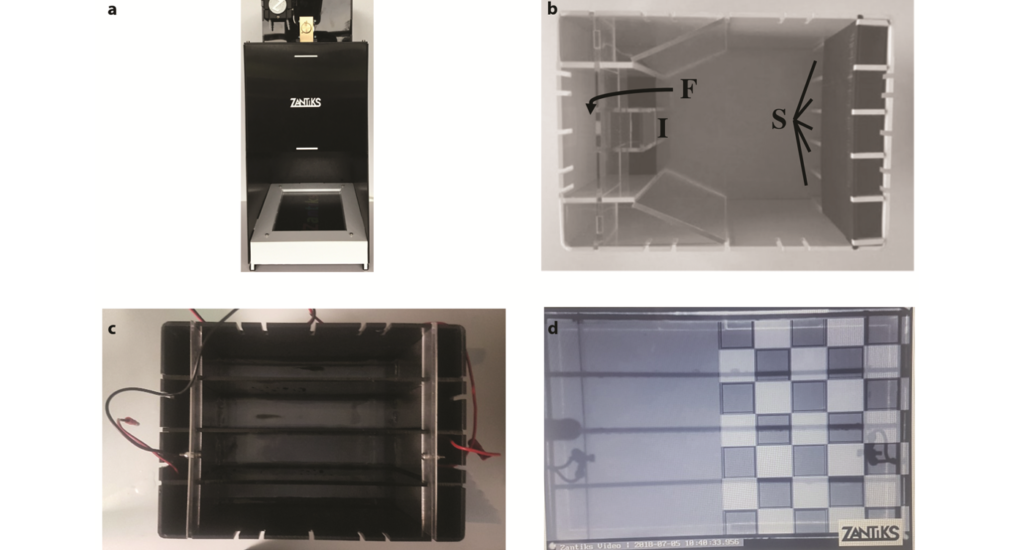21 November 2019

In a new paper, published in Neuropsychopharmacology, which demonstrates that juvenile zebrafish are a suitable model to study aggression, Zantiks AD units were used to test fish for attention levels, impulsivity and learning.
Carreno Gutierrez et al identify caffeine and sildenafil as drugs to reduce zebrafish aggression. During the study adult zebrafish were tested in Zantiks AD units using the 5-choice serial reaction time task (5-CSRTT) and Pavlovian fear conditioning protocols. Ten adult wild-type zebrafish were trained to associate a light with a food reward in the 5-CSRTT, to test their attention levels, and then, by adding a 10 second variable pre-stimulus interval, they were tested for premature (impulsive) responses. Caffeine prompted a decrease in correct responses (attention) but an increase in premature (impulsive) responses. Sildenafil, in contrast, showed an increase in correct responses but decrease in premature responses.
However following exposure to high levels of either caffeine or sildnafil in the Pavlovian fear conditioning test, neither group differed from the control group, suggesting that aversive learning was not effected. The learning of the fish was evaluated from measurement of their change in preference for a conditioned stimulus following pairing with a brief, mild electric shock.
The Zantiks AD unit automates the 5-CSRTT and Pavlovian fear conditioning protocols for zebrafish and provides real-time video recordings and processed results data in a .csv file.
The paper, Screening for drugs to reduce zebrafish aggression identifies caffeine and sildenafil, was published on 1 November 2019 - a full description of the adult behaviour methods can be found in the paper's Supplementary material.

